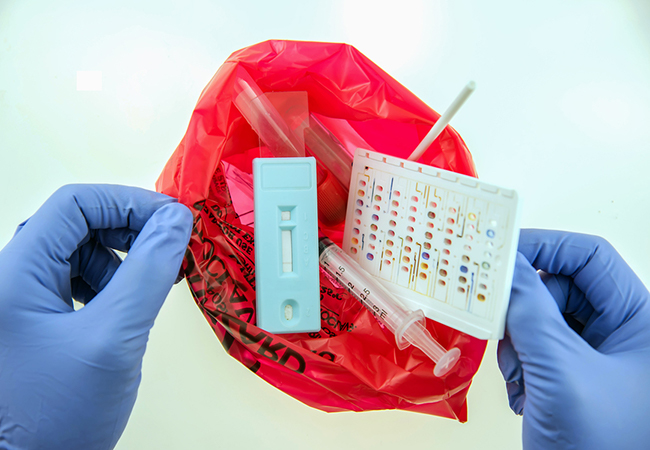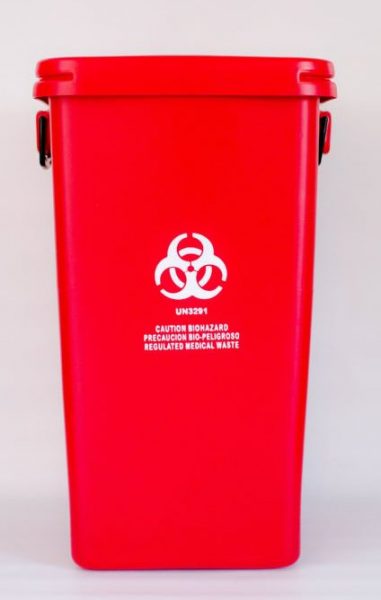Medical Waste Removal Mastery: Where Service Excellence Satisfies Health And Wellness Requirements
Efficient and Eco-friendly Medical Waste Disposal Solutions
In the ever-evolving field of health care, the problem of clinical waste disposal remains a topic of vital relevance. As hospitals, centers, and other healthcare centers strive to offer high quality patient care, they need to additionally deal with the obstacle of successfully and sensibly disposing of their waste.
Waste Partition Practices
Effective waste segregation practices are vital to make certain the correct and secure disposal of clinical waste. Medical waste, which includes materials infected with possibly transmittable compounds, should be handled in a way that decreases the risk of injury to both public health and the atmosphere. Proper waste partition plays a crucial duty in achieving this objective.
Waste segregation entails the separation of different sorts of waste based on their features and potential risks. This procedure makes sure that each sort of waste is treated and dealt with suitably (medical waste disposal services with WasteX). It starts at the factor of generation, where healthcare facilities should have marked bins and containers for different waste classifications, such as sharps, transmittable waste, pharmaceutical waste, and non-hazardous waste
By setting apart clinical waste at the source, healthcare providers can avoid cross-contamination and decrease the risk of direct exposure to infectious agents. This practice likewise facilitates the recycling and recovery of particular products. For instance, segregating and recycling clean plastics and glass decreases the demand for resources and minimizes the environmental influence of medical waste disposal.

Autoclaving and Sanitation Strategies
In order to make sure the safe and proper disposal of medical waste following efficient waste segregation techniques, health care centers must use autoclaving and sanitation techniques. Autoclaving is an extensively made use of approach that makes use of high-pressure heavy steam to sterilize medical waste.
This entails treating the waste with chemicals such as ethylene oxide or hydrogen peroxide, which eliminate microbes by interrupting their mobile structure. It is important to note that chemical sterilization calls for appropriate handling and disposal of the chemicals utilized, as they can be dangerous to human health and wellness and the environment if not handled correctly.
On-Site Waste Treatment Systems
Healthcare facilities have actually executed on-site waste treatment systems to attend to the disposal of medical waste in a secure and effective manner. These systems provide a economical and convenient option for taking care of clinical waste produced within the facility. On-site waste treatment systems use numerous modern technologies to deal with and dispose of medical waste on-site, lessening the demand for transportation to off-site centers.
One commonly used on-site waste therapy system is the microwave innovation. An additional system is the chemical disinfection technology, which entails treating clinical waste with chemicals to eliminate virus and reduce its harmful nature. medical waste disposal services with WasteX.
They remove the danger of medical waste being messed up throughout transport, reducing the possibility for contamination and exposure to harmful compounds. On-site treatment systems lower the total environmental impact of medical waste by minimizing transport and the need for landfill room.
Recycling and Repurposing Campaigns
As healthcare centers make every effort for lasting waste management techniques, they try this website are increasingly checking out recycling and repurposing efforts as a method of reducing the ecological impact of medical waste. Reusing and repurposing campaigns entail locating innovative methods to recycle or change clinical waste into brand-new items or products. This not only aids to decrease the volume of waste that ends up in burners or garbage dumps however additionally minimizes the medical waste disposal services with WasteX intake of basic materials and power needed for making brand-new items.
One instance of recycling in the health care sector is the reprocessing of single-use clinical devices. This not only reduces the amount of waste created however additionally conserves health care facilities substantial costs linked with purchasing new gadgets.
An additional recycling effort entails the recycling of plastic containers, such as medication bottles or syringe cases. These containers can be gathered, sorted, and sent to recycling centers where they are refined, thawed down, and transformed into new plastic items. This aids to conserve resources and reduce the demand for virgin plastic production.
Along with recycling, repurposing efforts include finding different uses for clinical waste. Shredded paper waste from clinical documents or product packaging products can be repurposed as bed linens product for pets or as insulation product. In a similar way, natural waste such as food scraps from medical care centers can be composted and made use of as plant food in yards or farming areas.

Renewable Energy Solutions
One efficient method to reducing the environmental impact of health care operations involves implementing renewable resource options. Health care facilities, such as clinics and hospitals, eat considerable amounts of power for numerous functions, including lights, heating, cooling, and running medical tools. By transitioning to renewable resource resources, these centers can considerably reduce their carbon impact and contribute to an extra lasting future.

Carrying out renewable resource services in health care centers not just lowers greenhouse gas emissions but likewise uses lasting price financial savings. While the first investment in renewable energy infrastructure may be higher, the long-lasting operational expenses of sustainable power systems are substantially reduced contrasted to typical fossil fuel-based power resources. In addition, renewable resource systems are reliable and can provide a stable and uninterrupted power supply, ensuring continuous healthcare services even throughout power blackouts or emergency situations.
Verdict
In verdict, executing ecologically pleasant and efficient clinical waste disposal solutions is crucial for maintaining a lasting healthcare system. this page By embracing waste partition practices, autoclaving and sanitation techniques, on-site waste treatment systems, reusing and repurposing efforts, and renewable energy remedies, healthcare facilities can dramatically decrease their ecological influence.
It starts at the point of generation, where medical care facilities ought to have assigned containers and containers for different waste categories, such as sharps, contagious waste, pharmaceutical waste, and non-hazardous waste.
In order to make certain the safe and appropriate disposal of medical waste complying with efficient waste partition techniques, healthcare facilities need to use autoclaving and sanitation techniques.Healthcare facilities have carried out on-site waste treatment systems to resolve the disposal of medical waste in a effective and risk-free fashion. On-site waste therapy systems make use of numerous modern technologies to treat and dispose of medical waste on-site, minimizing the need for transportation to off-site facilities.
As healthcare facilities strive for sustainable waste management practices, they are increasingly exploring recycling and repurposing campaigns as a method of lowering the ecological influence of clinical waste. - medical waste removal near me